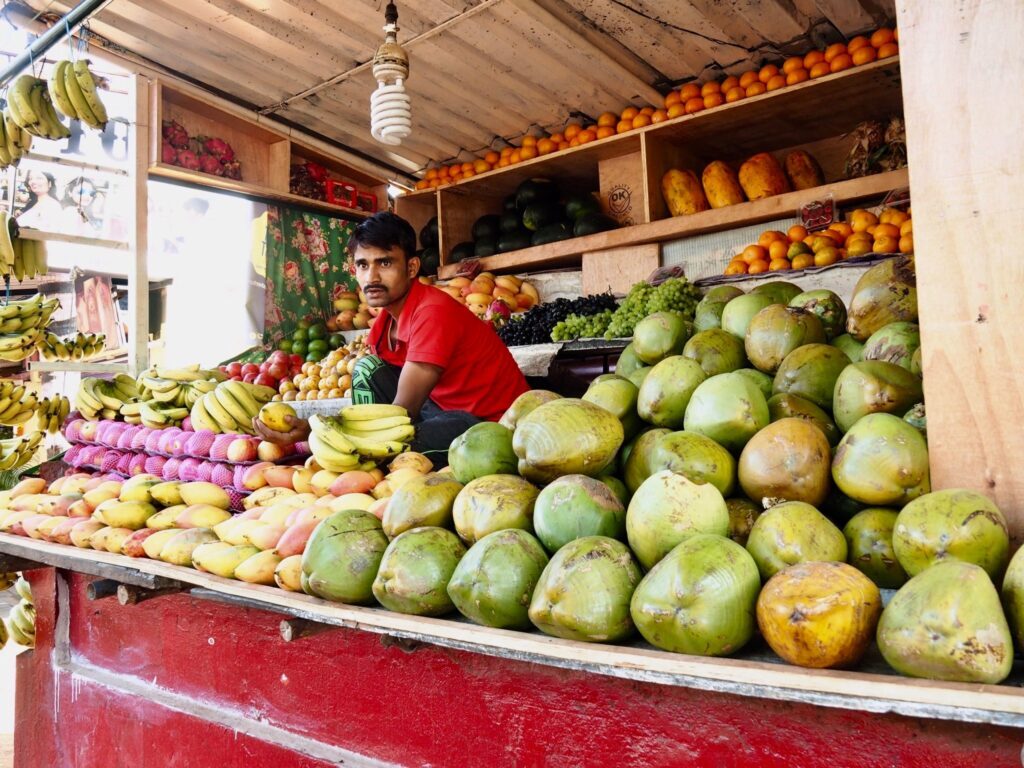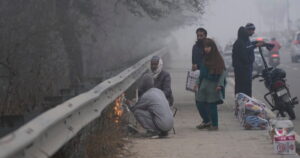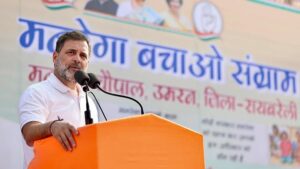India’s Double-Edged Nutrition Problem

The nutritional quality of many Indians’ diets has deteriorated since the start of the pandemic (Pic: Melissa Viiron, Unsplash CC BY 4.0)
Three in four South Asians who cannot afford a healthy diet live in India.
Now, as India looks to fix malnutrition, it finds itself forced to tackle both undernutrition and growing levels of overnutrition as more and more of its people are classified as overweight.
Diet quality, already alarmingly bad, is only likely to have deteriorated in India during the pandemic and in the wake of rising food prices in recent months. UN data for 2020 estimated nearly a billion Indians were unable to purchase a wholesome, nourishing diet. And a recent study found more than two-thirds of India’s rural population could not afford a diet that met India’s own dietary guidelines. More than half of the respondents in a December 2021-January 2022 survey said they ate fruits, flesh foods, eggs or milk fewer than two or three times a month, while four in five respondents said the nutritional quality of the food they consumed had deteriorated since the pandemic.
For a country looking to reap the financial benefits of its growing young workforce, the economic implications of malnutrition among Indian children, adolescents and working-age adults are as significant as the costs for health and quality of life.
Rates of stunting among pre-schoolers – a key marker of chronic undernutrition – fell substantially from 48 percent in 2005-06 to 38.4 percent in 2015-16. But by 2019-21 progress against stunting had slowed, falling less than three percentage points to 35.5 percent.
One in five children in India are too thin — a statistic that has barely moved since the early 1990s. It’s one of the highest rates in the world, and a major risk factor for child mortality.
Simultaneously, each new national health survey reveals growing numbers of overweight or obese Indian men and women, as well as related increases in linked diseases such as heart disease, diabetes and hypertension.
In a five-state project surveying close to 3,000 women in 2019, researchers found carbohydrate consumption through cereal was pervasive and more than two-thirds reported eating pulses or starchy vegetables (most likely potatoes) in the past 24 hours. However, only a third had eaten nutrient-dense dark green leafy vegetables, and fewer than one in six respondents had eaten fruits, meat, fish, eggs, nuts and seeds or any dairy products. More than half reported eating sweets, sugary drinks, or other snacks in the preceding 24 hours.
This double burden of over- and undernutrition has high social costs. Obesity-related chronic diseases raise health costs, lower productivity and curtail life expectancy. The lack of good nutrition for cognitive and developmental ability in children also lowers productivity and earnings in adulthood.
Finding Fixes
Among the various policy options to tackle malnutrition, those that aim to improve access to high quality diets that are safe, hygienic, diverse and fresh are arguably the most essential. They involve double-duty actions that can address problems of under- and over-nutrition simultaneously.
Policy recommendations to improve access to affordable healthy diets need to acknowledge both the scale of the problem as well as the drivers for different segments of the population.
For wealthier households in both rural and urban areas, it’s likely current food expenditure is more than the minimum required to meet nutritional guidelines. The need here is one of reallocation. Providing information about what constitutes a healthy diet through social media, or as part of school curricula, could aid this reallocation.
Another constraint is time. Many Indian adults work long hours, making processed foods and eating out convenient. Policies to dissuade food processors and vendors from producing and selling unhealthy foods – such as fat and sugar taxes, and better product labelling or ratings – could be useful.
For the poor, the binding constraint is far more likely to be inadequate resources. While information undoubtedly has a value here as well, it must be combined with measures that either enhance incomes or reduce the cost of nutritious foods. Policies that improve employment, especially among rural women, are key to raising incomes: these include investing in workfare programmes like the National Rural Employment Guarantee Act, as well as expanding farm and off-farm value-chain opportunities.
Improved access to nutritious foods through existing in-kind transfer programmes, like the Public Distribution System or the mid-day meal scheme in schools, can significantly lower the cost of provisioning household diets. These transfer programmes, under threat from many angles, were often what kept many vulnerable families from starvation during the pandemic.
(Originally published under Creative Commons by 360info™)





